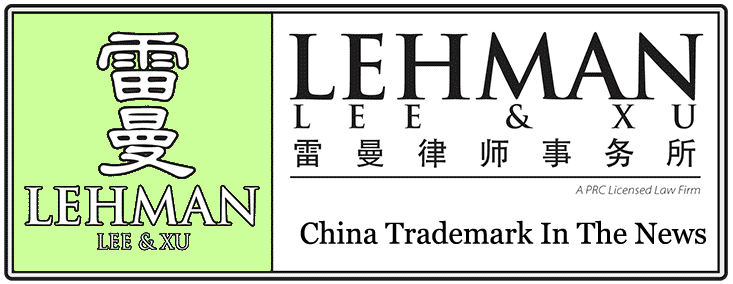

 |
LEHMAN, LEE & XU China Lawyers |
China Trademark In The News |
Nov. 13, 2015 |
|
The China Law News keeps you on top of business, economic and political events in the China. |
In the News |
Who Owns Your Trademark in China? The Fast Food Edition |
Ezell’s Fried Chicken is a well-known Seattle fried chicken restaurant, made more so by Oprah Winfrey once naming it her favorite fried chicken. Seattle Trademark Lawyer Blog is a well-known and great IP Blog, made more so by the fact that its writer, Michael Atkins, is a friend of mine. This is all relevant because Mike did a blog post on a lawsuit involving Ezell’s, entitled, Ezell’s Case Illustrates Need to Decide Who Owns Mark Before Dispute Arises. The post describes “a struggle over use of the restaurant name Ezell’s Fried Chicken between its founder, Ezell Stephens — now separated from the company — and the company’s board. Both parties now sell fried chicken in the Seattle area under the Ezell name.” The post talks about how company founders often fail “to put licenses between themselves and their company in writing. They just assume that the company can use the technology [or other intellectual property] they create. But what happens when they are no longer associated with the company? Can the company continue to use the technology? Can the founder?” Mike then goes on to call out the need for clarity of ownership from the outset:
Just last week, The New York Times did its own story on a trademark dispute between owners of a fast food chain, entitled, Z-Burger Case Shows Value of Trademark Protection. All of these same issues are at least equally true regarding intellectual property in China and we see the same problems there that Mike and the New York Times see in the United States. Only because it is China, even more so…. This issue arises in China, but in an entirely different form. In the U.S., a trademark is created by use, not by registration. In China, the situation is the opposite. In China, NO ONE owns a trademark until the trademark has been registered. You can use it. Someone else can use it. But, no one owns it until it is registered, and the first one to register it is the owner. Thus, in China, the Ezell’s issue would have been resolved by asking two questions: 1. Has the mark been registered? If the mark has not be registered, no one owns the mark. 2. If the mark has been registered, who registered? Whoever registered first owns the mark. The analysis is that simple. Where U.S. companies run into trouble is when they fail to register. When they fail to register, this provides the opportunity for another company to register and then gain the right to the mark. Our China lawyers have seen this sort of thing happen in all sorts of situations, with the following most common:
Note that I have not even discussed the classic trademark squatter. This is because trademark spotters are in some respects easy to deal with: they want a certain amount of money and then they will go away. The examples I have discussed above are much more difficult to deal with because the Chinese side has legitimate business reasons for doing their registration. In these circumstances it is usually difficult or even impossible to just pay them off, which can result in devastating consequences for the foreign company. So the message is clear. Make sure that YOU are the one who owns your trademarks in China. This means register your trademark in China now and register in the right categories covering the right items. Register in the Chinese language if you plan to sell in China. If you wait, or if you do it wrong, the consequences are not just confusion. The consequences can be that you get shut down, a far worse result than what happened in the Ezell’s matter. http://www.chinalawblog.com/2015/11/who-owns-your-trademark-in-china-the-fried-chicken-version.html |
|
|
|
|
| Proud Member of |